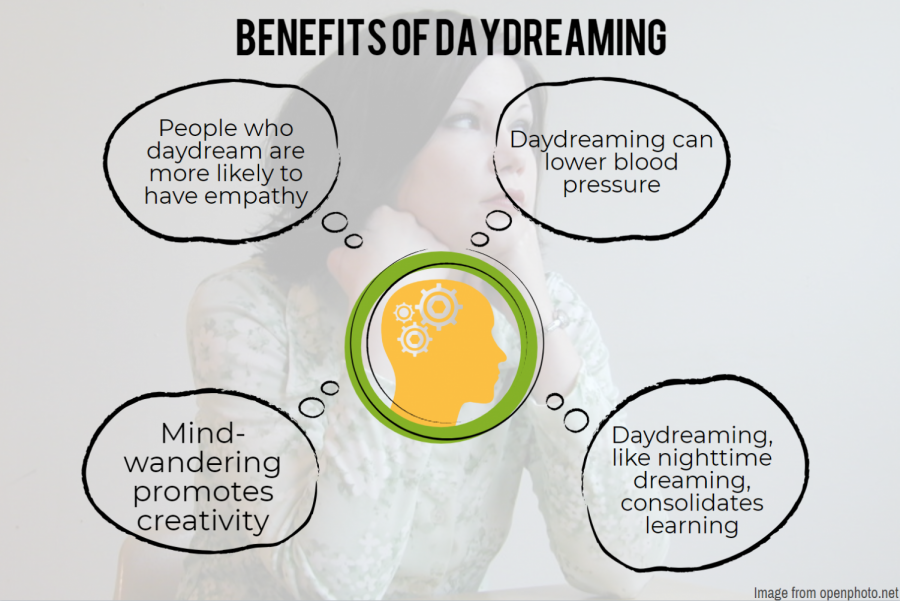Mindlessness is just as good for you as mindfulness
October 18, 2018
All of my life—even before my hand drifted to my phone at every interval of boredom—I’ve zoned out. Whether it be in school, in the car or even listening to a friend talk, my mind eventually drifts somewhere else.
Our society places too much emphasis on focus. Growing up, my parents were always concerned that if I didn’t pay attention, I wouldn’t be able to understand my classes. While their concerns were valid, there’s also value in sometimes allowing your mind to drift.
In recent years, mindfulness—a technique which encourages awareness of the present—has become increasingly popular. But in reality, focusing too much can hinder creativity, and letting your mind wander without awareness is just as vital to promoting optimal mental health. Mindlessness is just as necessary as mindfulness for your ideas to marinate and develop.
The human mind isn’t built to be active for hours on end. Our minds wander in roughly 50 percent of our waking hours, according to a 2015 video by New York Magazine. When we zone out, our thoughts drift towards unanswered questions, pending issues or future dreams. A 2012 study by the Association for Psychological Physical Science found that engaging in an “undemanding” task in between periods of intense work led to better problem-solving ability. In this state of unawareness, your brain releases a chemical called norepinephrine that fosters creativity, according to a video by National Geographic.
Letting your mind slip out of dead-locked focus can cure the writers block you’ve been having or give you a ‘light bulb moment.’ Take Einstein for example: after crafting equations for months, he then let his mind wander and finally discovered the theory of relativity, National Geographic reported.
Additionally, as much as we might think turning to our phones is the relaxation we deserve, they’re actually not a break at all. Turning to text messaging and social media apps every time we get bored forces our brain to constantly process new information, inhibiting its ability to wander off. Frequent technology use forces our minds to constantly absorb new information, limiting mind-wandering and creative breakthroughs, a 2015 Harvard Business Review article reported.
I’ve experienced this phenomena myself. When I absorb myself in editing an English essay or stare at a math problem for a long period of time, my thoughts end up becoming clouded. At some point my mind will wander, and once I refocus on my task, I usually have much more creative ideas than those I was trying to conjure before my mind had drifted.
So next time you reach for you phone during a break in between tasks or try staying focused while doing chores, remember that zoning out can be just as important as focusing is. Allowing yourself time to let you brain drift into subconscious thoughts will foster creativity and help lead you to your next eureka moment.








